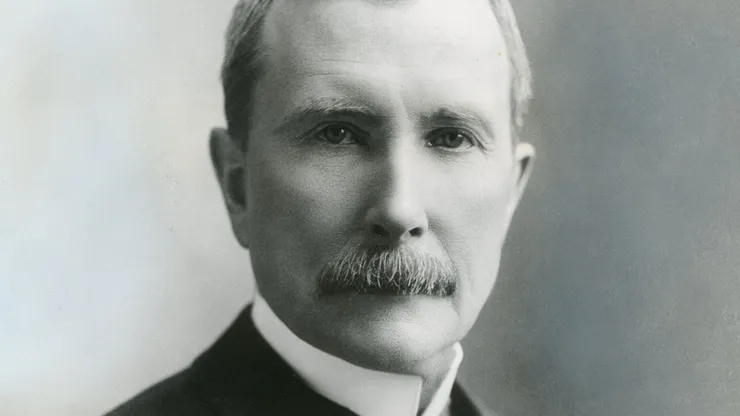Introduction to Poet Wolfe
Every generation has a voice that captures its struggles, triumphs, and hidden longings. Poet Wolfe is one such literary figure whose words transcend time. Known for a vivid imagination and a deep sensitivity to human experience, Wolfe carved out a place in the world of poetry with an unmatched ability to blend personal reflection and universal truth. Through a mix of lyrical beauty and raw honesty, Wolfe’s poems continue to resonate with readers of all ages, making them a subject of both admiration and academic study.
Early Life and Inspirations of Poet Wolfe
To understand the essence of poet Wolfe’s work, you must first trace back to the environment that shaped them. Wolfe grew up in a period marked by cultural change, and those formative years played a decisive role in shaping their literary voice. Surrounded by both hardship and inspiration, Wolfe’s upbringing provided fertile ground for creative exploration. Encounters with nature, exposure to diverse traditions, and personal challenges combined to spark an enduring fascination with language and metaphor.
Many readers point to Wolfe’s ability to transform everyday experiences into profound poetry. This gift, likely rooted in early personal struggles, set the stage for a career that merged authenticity with artistry.
Poet Wolfe’s Literary Career
The First Works
Wolfe’s earliest poems carried the raw energy of a writer still discovering their voice. Published in small journals and magazines, these works often reflected intimate observations about life and relationships. Reception was mixed at first, but the originality stood out.
Major Collections and Publications
As Wolfe matured, their poetry collections gained recognition. These books often explored themes such as identity, belonging, and the passage of time. Each collection served as a stepping stone, refining the poet’s craft and solidifying Wolfe’s reputation among critics and peers.
Reception and Critical Acclaim
Over the years, poet Wolfe earned awards, nominations, and consistent mentions in leading literary reviews. Critics praised the work for its emotional depth, while scholars highlighted Wolfe’s stylistic innovation. The poet’s voice, at once deeply personal and universally relatable, earned respect from both academics and casual readers.
The Writing Style of Poet Wolfe
Common Themes
Several themes appear throughout Wolfe’s poetry, including:
- Nature as a mirror of emotion
- Love and loss expressed through layered metaphors
- Identity and belonging in a rapidly changing world
- Resilience and hope in the face of adversity
Language and Structure
Poet Wolfe favored language that was elegant yet accessible. Unlike poets who relied on excessive obscurity, Wolfe struck a balance between clarity and depth. Structured verse mixed with free-flowing stanzas created variety, while carefully chosen imagery allowed readers to see ordinary things in extraordinary ways.
Influence of Poet Wolfe on Modern Literature
Few poets leave a mark as enduring as Wolfe. Contemporary writers often cite Wolfe’s ability to merge emotional honesty with intellectual rigor as a key influence. Wolfe’s poems have appeared in countless anthologies, shaping how future generations interpret themes of identity, resilience, and human connection.
Beyond literature, Wolfe’s words inspired visual artists, musicians, and filmmakers. This cross-disciplinary influence demonstrates the timeless reach of the poet’s artistry.
Famous Poems by Poet Wolfe
Among Wolfe’s most celebrated works are poems that continue to appear in classrooms, anthologies, and cultural discussions.
Notable examples include:
- “Whispers of the River” – an exploration of nature as a guide for healing
- “Letters Unwritten” – a meditation on unspoken truths in relationships
- “The Silent City” – reflections on urban alienation and identity
- “Beyond the Horizon” – a hopeful piece about resilience and rebirth
Selected Quotes from Poet Wolfe
- “The river keeps no secrets, yet it teaches us to flow.”
- “Love lingers not in words, but in the silences between them.”
Case Studies – Academic Interpretations of Poet Wolfe’s Work
Scholars have studied Wolfe extensively, interpreting the work through lenses such as postmodern identity, environmental philosophy, and even political commentary.
| Theme | Scholarly Focus | Key Insight |
| Identity & Belonging | Explored in dissertations on Wolfe’s early collections | Poetry reflects struggles of marginalized voices |
| Environmental Themes | Studies link Wolfe’s work to eco-criticism | Nature used as metaphor for emotional healing |
| Cultural Commentary | Examined in essays on modern social issues | Poems address inequality and resilience |
Legacy of Poet Wolfe
Cultural Impact
Wolfe’s work extends far beyond bookshelves. Readings, festivals, and even university courses celebrate the poet’s contributions. In popular culture, lines from Wolfe’s poems have surfaced in songs, visual art, and even political speeches.
Ongoing Relevance
Why do new readers still flock to Wolfe’s work? Because the poetry speaks to timeless human concerns—love, loss, resilience, and hope. These themes never lose relevance, which is why Wolfe’s poetry continues to inspire fresh interpretations today.
How to Study and Appreciate Poet Wolfe’s Work
To fully experience Wolfe’s artistry, consider the following strategies:
- Read slowly: Wolfe’s poems reward careful reading.
- Look for patterns: Notice repeated symbols like rivers, silence, or horizons.
- Contextualize historically: Understanding the time of writing deepens appreciation.
- Engage with criticism: Academic essays can reveal hidden nuances.
Recommended Resources:
- Annotated anthologies of Wolfe’s poetry
- Online archives and university libraries
- Recorded readings of Wolfe’s performances
Conclusion – Why Poet Wolfe Still Matters
The lasting power of poet Wolfe lies in their ability to capture universal truths with elegance and emotional honesty. From early struggles to celebrated collections, Wolfe’s journey reflects resilience, creativity, and the human spirit’s boundless capacity to endure and transform. Whether studied in a classroom, quoted in a speech, or read in solitude, Wolfe’s words remain as powerful today as when they were first written.
In an era where voices often compete for attention, poet Wolfe’s work continues to whisper truths that cut through the noise—reminding us of the beauty, pain, and wonder of being human.















Leave a Reply